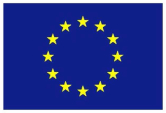Global IQ: Impact Quantification of Global Changes
17 June 2014 9:15 am CEST
Final Conference
Venue
Renaissance Brussels Hotel, Brussels
Description
This one-day conference will present and discuss the findings of a major three-year collaborative research project involving eleven partners located in eight EU members states, led by the Toulouse School of Economics.
Global IQ – Impacts Quantification of Global Changes provides new, scientifically-advanced estimates of the socio-economic impacts of key global challenges, economic, environmental and social, from the European to global scale, and seeks to identify the optimal mix of adaptation and mitigation in the face of these challenges.
Themes for the day include:
- The Global-IQ scenarios: Europe in a changing world
- Trade and competitiveness: Europe in the global economy
- Climate change impacts, including on human health
- Energy and energy security in a climate constrained world
- Feeding the global population
- Protecting forests and biodiversity
- Drivers of energy saving in the home
- The debate about discounting the future
- Formulating policy under uncertainty
Confirmed speakers include: Christian Gollier, Toulouse School of Economics (keynote speech) | Emanuele Massetti, Fondazione Eni Enrico Mattei | Joseph Francois, Vienna Institute for International Economic Studies | Marian Leimbach, Potsdam Institute for Climate Impact Research | Milan Scasny, Charles University Prague | Olof Johansson-Stenman, University of Gothenburg | Simon Dietz, London School of Economics
This conference is free and open to all, but places are limited. To reserve a place, e-mail gri@lse.ac.uk. For more information about Global IQ and the conference, visit www.global-iq.eu.
The partners in Global IQ:The Toulouse School of Economics | Fondazione Eni Enrico Mattei (FEEM) | International Institute for Applied Systems Analysis | Potsdam Institute for Climate Impact Research | University of Gothenburg | Charles University Prague | Institute of Studies for the Integration of Systems | London School of Economics and Political Science | Graduate Institute of International Studies in Geneva | Vienna Institute for International Economic Studies | Centre for Economic Policy Research
This project has received funding from the European Union’s Seventh Framework Programme for research, technological development and demonstration under grant agreement no 266992

